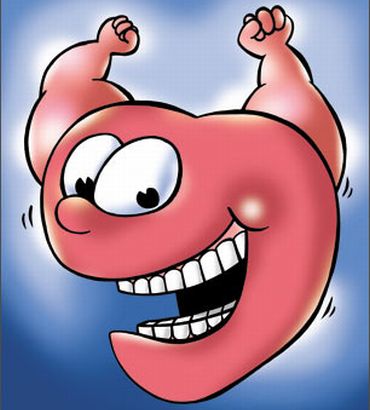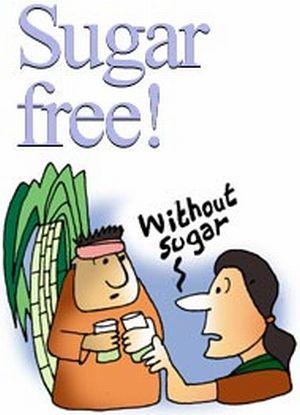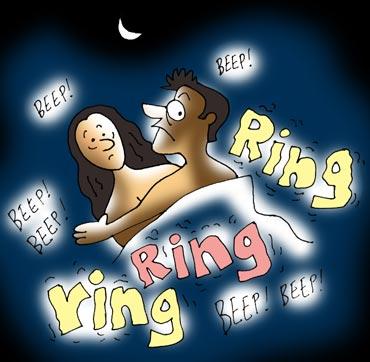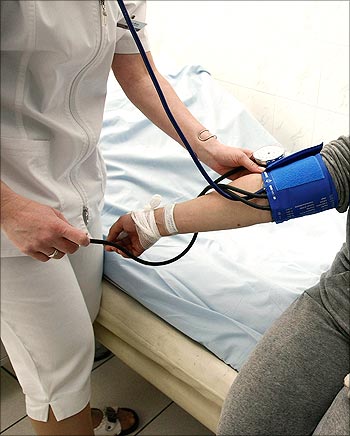From treatments for erectile dysfunction to the best food for diabetes, doctors answer ten really important health questions.
Always wanted to know answers to basic health questions and didn't know who to ask? Fear not, in the following pages, doctors from across the country are answering questions that you've wanted answered. Read on.
What are the symptoms of heart attack?
Dr Sudhir Srivastava, Cardiothoracic Surgeon, International Centre for Robotic Surgery says, "The symptoms of a heart attack vary between patients, depending on age, sex, past medical history among others.
The most prominent symptom is pressing chest pain in the middle or left chest, which may appear suddenly or more gradually. The pain can also be in the neck, jaw, shoulders, and back. Some patients may even experience nausea and vomiting, sweating, fast heart beat, and shortness of breath.
Some patients may experience "warning signs" prior to the actual attack, like a gradual sensation of chest pain over weeks or months."
What should a diabetic eat?
Diet should be the mainstay of all diabetic management! Basic diabetes diet advice includes avoiding simple carbohydrates like sugar, sweets, jaggery, etc., as they tend to spike blood glucose levels.
Carbohydrates should constitute around 60-70% of your total calories and contain an adequate amount of fibre. Fats should be restricted to around 20-25% of the total calories, limiting your use of ghee. Be sure to eat plenty of fresh fruits, vegetables, and low-fat proteins, too." says Dr Purvish Parikh, Medical Advisor, Medico.in
What are the treatments for erectile dysfunction?
Dr Anant Kumar, Director Robotic Urology, ICRS says, "An erection involves your brain, nerves, hormones, and blood vessels. Anything that interferes with these normal functions, like chronic conditions, stress, etc., can lead to problems getting an erection.
It's important to talk about treatment options with your health care provider, but the answer may be as simple as trying certain relaxation techniques. More advanced treatments can include injections, medication, and surgery."
What is the treatment for sleeplessness?
Dr Anup Dhir, Cosmetic Plastic Surgeon, Apollo Hospital further says, "Try changing your night time habits before taking drugs for insomnia.
These tips may help you get a good night's sleep: Avoid emotionally upsetting or stressful situations before bedtime, avoid alcohol and caffeine in the evenings, quit smoking, eat a light snack before bedtime, establish a regular bedtime, and exercise regularly, but not in the last two hours before going to bed."
Is the withdrawal method considered safe sex?
What is the best treatment for controlling thyroid problems?
What are the symptoms of pregnancy?
Photographs: Adnan Abidi/Reuters
Dr Neena Singh, Director Robotic Gynaecologist, ICRS says, "The first symptom of pregnancy is typically a missed period. During the first three months of pregnancy, many expecting mothers suffer from nausea and vomiting, occasional slight bleeding (spotting), heaviness in breasts, breast tenderness, discoloration or darkening of the area around nipple (areola), and frequent urination.
If you suffer from any of the symptoms mentioned and think you may be pregnant, consult a gynaecologist."
How can an overweight/obese person lose weight?
Dr Randeep Wadhawan, Director Robotics General Surgery, ICRS, says, "Our weight is determined by our genes, diets and physical activity levels.
Eating junk food that is rich in fats and high in carbohydrates is best avoided if you desire to keep your weight in check. Instead, eat plenty of fresh vegetables, especially green leafy vegetables, in addition to fruits, whole grains, and lean proteins like chicken, turkey, and fish.
You may also want to consult a dietician to create a reasonable diet plan. Regular exercise can also help you lose weight, but talk to your doctor before beginning a regimen."
What should I eat to cure high cholesterol and high blood pressure?
Photographs: Fabrizio Bensch / Reuters
Your diet is only one cause of high cholesterol and high blood pressure. Family history of high cholesterol and low activity levels can also put you at risk.
However, eating a heart-healthy diet may help. It is best to fill up on fruits and vegetables that are also rich in fibre, like apples, broccoli, and peas.
Try to limit cholesterol, salt, and saturated fats, like full-fat dairy products and processed foods. Choose lean proteins like skinless chicken and fish and whole grains whenever possible." says Dr. Sudhir Srivastava, Cardiothoracic Surgeon, International Centre for Robotic Surgery











Comment
article